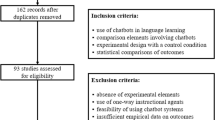Abstract
This paper begins with a consideration of some important themes dealt with in the paper by Treagust and Duit. These include the relationship between research on conceptual change and educational practice, the significance of emotion and identity in the process of conceptual change, and role of cognitive conflict in motivating change. I then argue that the authors implicitly assert the importance of spoken dialogue as a motor for conceptual change, but do not give it the proper, explicit recognition that it deserves. I first use their own data of transcribed talk to make this point, and then go on to elaborate my case by drawing on other research. Talk amongst students and teacher–student talk are both considered. My conclusion is that while more empirical research is needed to understand how dialogue is involved in conceptual change, available evidence shows very clearly that the role of talk and social interaction is so significant that it cannot be ignored. It is therefore necessary for theoretical accounts to deal with both social (i.e. communicative) and cognitive aspects of conceptual change.
Similar content being viewed by others
References
Alexander, R. (2006). Towards dialogic teaching: Rethinking classroom talk. Cambridge: Dialogos.
Ames, G. J., & Murray, F. B. (1982). When two wrongs make a right: promoting cognitive change by social conflict. Developmental Psychology, 18, 894–897.
Barnes, D. (1976). From communication to curriculum. Harmondsworth: Penguin Books.
Bearison, D. J., Magzamen, S., & Filardo, E. C. (1986). Socio-cognitive conflict and cognitive growth in children. Merrill-Palmer Quarterly, 32, 51–72.
Blaye, A. (1990). Peer interaction in solving a binary matrix problem: Possible mechanisms causing individual progress. Learning and Instruction, 2, 45–56.
Brown, A. L., & Palincsar, A. S. (1989). Guided, co-operative learning and individual knowledge acquisition. In L. B. Resnick (Ed.), Knowing, learning and instruction: Essays in honor of Robert Glaser (pp. 393–451). Hillsdale, NJ: Lawrence Erlbaum.
Chinn, C. A., & Anderson, R. C. (1998). The structure of discussions that promote reasoning. Teachers College Record, 100, 315–368.
Doise, W., Mugny, G., & Perret-Clermont, A-N. (1975). Social interaction and the development of cognitive operations. European Journal of Social Psychology, 5, 367–383.
Howe, C. J., Rodgers, C., & Tolmie, A. (1990). Physics in the primary school: Peer interaction and the understanding of floating and sinking. European Journal of Psychology of Education, V, 459–475.
Howe, C. J., Tolmie, A., & Mackenzie, M. (1995). Collaborative learning in physics: Some implications for computer design. In C. O’Malley (Ed.) Computer-supported collaborative learning (pp. 51–68). Berlin: Springer-Verlag.
Howe, C. J., Tolmie, A., & Rodgers, C. (1992). The acquisition of conceptual knowledge in science by primary school children: Group interaction and the understanding of motion down an inclined plane. British Journal of Developmental Psychology, 10, 113–130.
Howe, C., Tolmie, A., Thurston, A., Topping, K., Christie, D., Livingston, K., Jessiman, E., & Donaldson, C. (2007). Group work in elementary science: Towards organizational principles for classroom teaching. Learning and Instruction, 17, 549–563.
Kim, I-H., Anderson, R., Nguyen-Jahiel, K., & Archodidou, A. (2007). Discourse patterns during children’s online discussions. Journal of the Learning Sciences, 16, 330–370.
Mercer, N. (2000). Words and minds: How we use language to think together. London: Routledge.
Mercer, N., Littleton, K., & Wegerif, R. (2004a). Methods for studying the processes of interaction and collaborative activity in computer-based educational activities. Technology, Pedagogy and Education, 13, 193–209.
Mercer, N., Dawes, R., Wegerif, R., & Sams, C. (2004b). Reasoning as a scientist: Ways of helping children to use language to learn science. British Educational Research Journal, 30, 367–385.
Mercer, N., & Littleton, K. (2007). Dialogue and the development of children’s thinking: A sociocultural approach. London: Routledge.
Mortimer, E. F., & Scott, P. H. (2003). Meaning making in science classroom. Milton Keynes: Open University Press.
Piaget, J. (1932). The moral judgement of the child. London: Kegan Paul.
Piaget, J. (1985). The equilibration of cognitive structures: The central problem of intellectual development. Chicago: University of Chicago Press.
Resnick, L. B. (1999). Making America smarter. Education Week Century Series, 18(40), 38–40.
Rojas-Drummond, S., & Mercer, N. (2004). Scaffolding the development of effective collaboration and learning. International Journal of Educational Research, 39, 99–111.
Schwarz, B. B., Neuman, Y., & Biezuner, S. (2000). Two wrongs may make a right… If they argue together! Cognition and Instruction, 18, 461–494.
Wertsch, J. V. (1991). A sociocultural approach to socially shared cognition. In L. B. Resnick, J. M. Levine, & S. D. Teasley (Eds.), Perspectives on socially shared cognition (pp. 85–100). Washington: American Psychological Association.
Acknowledgements
This paper draws considerably on a review of research I carried out in collaboration with my colleague Christine Howe for the Primary Review, directed at Cambridge by Robin Alexander (http://www.primaryreview.org.uk). I am grateful for permission from both those colleagues to use that material here. I have also gratefully drawn on collaborative work with Karen Littleton in the preparation of Dialogue and the Development of Children’s Thinking and on the research project Dialogic Teaching in Science Classrooms (ESRC grant RES-000-23-0939).
Author information
Authors and Affiliations
Corresponding author
Rights and permissions
About this article
Cite this article
Mercer, N. Changing our minds: a commentary on ‘Conceptual change: a discussion of theoretical, methodological and practical challenges for science education’. Cult Stud of Sci Educ 3, 351–362 (2008). https://doi.org/10.1007/s11422-008-9099-8
Received:
Accepted:
Published:
Issue Date:
DOI: https://doi.org/10.1007/s11422-008-9099-8



